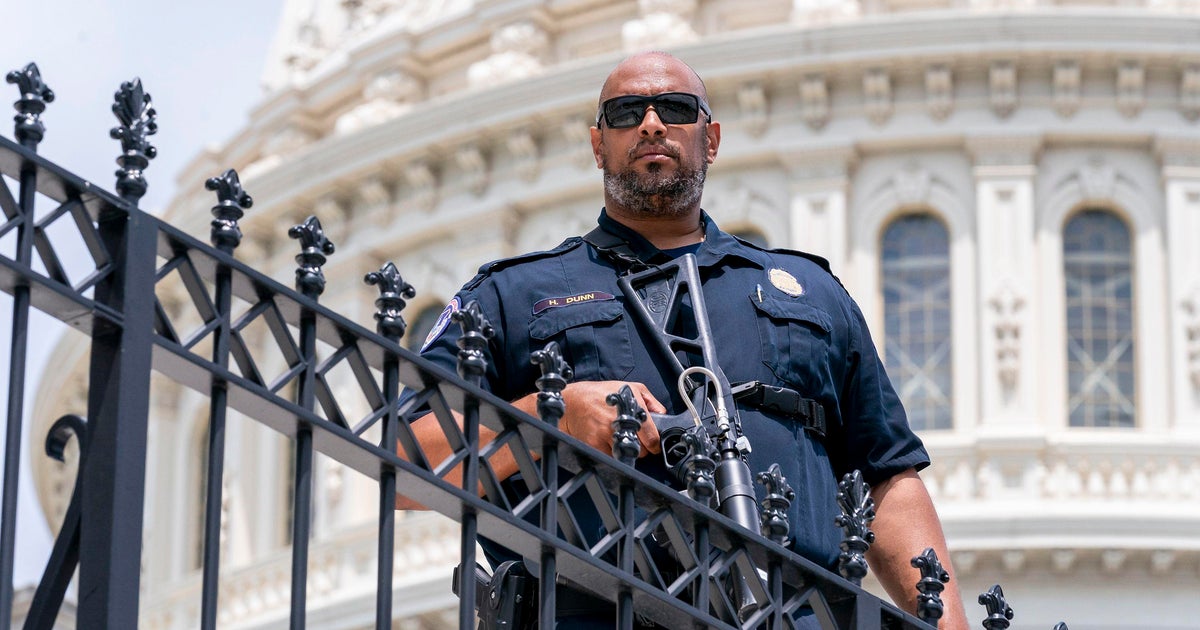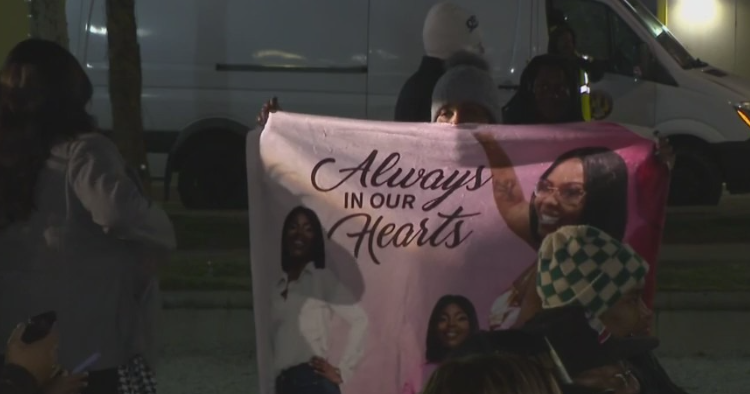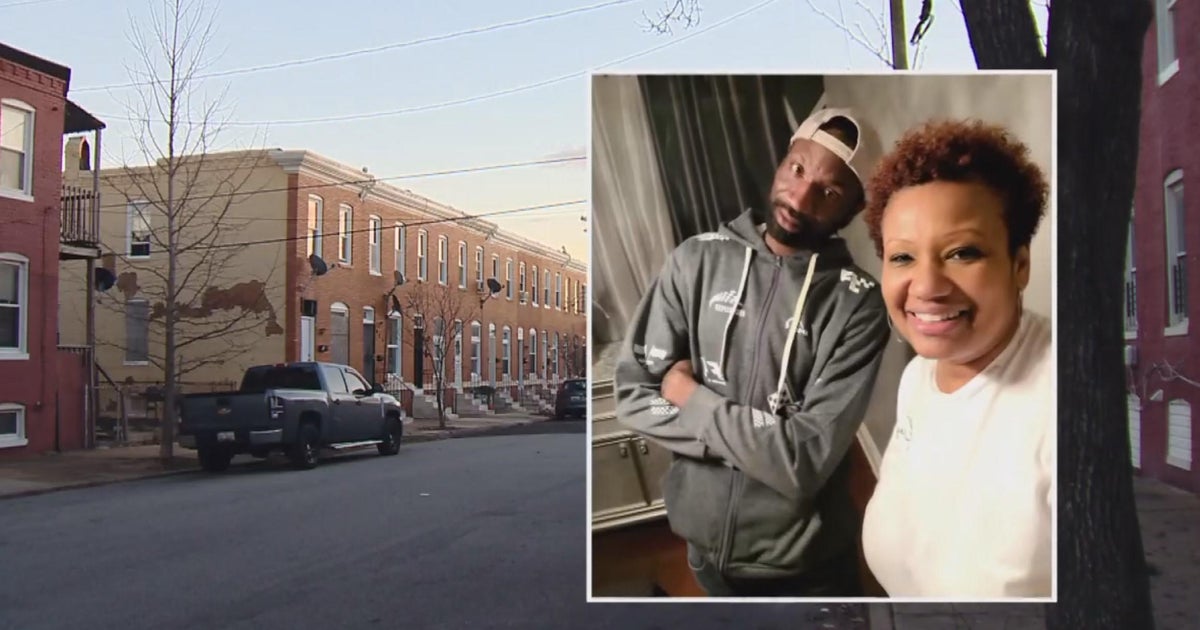Holiday week "swatting" incidents target and disrupt members of Congress
Before the Cayuga County, New York sheriff's deputies finally left his house, Republican Rep. Brandon Williams of New York handed them small bags filled with holiday shortbread cookies, chocolate-dipped peanut butter balls and double-chocolate cookies covered in powdered sugar after the unexpected, brief Christmas Day drama had ended.
Williams, a first-term Republican who represents Central New York, said he was the victim of a "swatting" call early in the afternoon on Dec. 25. Williams said someone placed a hoax phone call to police in Auburn, New York, to trigger a massive police response at his rural home. Law enforcement officials, recognizing his address, called in advance to alert Williams they had received an emergency alert claiming there was a crisis at his home. He said deputies quickly realized the call was a hoax, but only after the swatting incident had disrupted his family holiday. Williams suspects it could be the work of critics of some of his political stances or recent statements denouncing Hamas.
At least three members of Congress reported being the victims of "swatting incidents" over the holiday week, according to a review by CBS News. Other members of Congress, from both parties, have also experienced some form of disruption by such phony and harassing swatting calls over the past several weeks.
Swatting is an increasingly common, dangerous and illegal scheme. The callers attempt to prompt police to dispatch SWAT teams to the homes of public figures, celebrities or enemies, in an effort to harass the victims.
In just the past week, other members of Congress also reported being targeted. Hours before the response to Williams's home, Republican Rep. Marjorie Taylor Greene of Georgia announced she was also the victim of Christmas Day swatting.
In a social media post, Greene said, "I was just swatted. This is like the 8th time. On Christmas with my family here."
Greene had also publicly revealed being the victim of a swatting incident in August 2022. In that case, according to a police incident report, a local police department in Georgia received a 911 call "about a male possibly shooting his family members and himself at the home of Marjorie Greene."
On Thursday, Republican Sen. Rick Scott of Florida also revealed he had been the victim of a holiday week hoax call. In a social media post, Sen. Scott wrote, "Last night, while at dinner with my wife, cowards 'swatted' my home in Naples. These criminals wasted the time & resources of our law enforcement in a sick attempt to terrorize my family."
A Naples police spokesman told CBS News the person who made the deceptive phone call falsely told Naples police dispatch that a man had "shot his wife with an AR-15 three times while she was sleeping." The police spokesman said, "Within 15 minutes, we were able to confirm that the events did not occur and the incident was a swatting event. This is very much an active and ongoing investigation."
Arrests have not been announced in the cases.
In September, Rep. Anna Eshoo, D-Calif., was forced to evacuate because of a hoax call made to a California synagogue near her home, according to multiple reports and a staffer familiar with the episode.
Local police agencies often take the lead in responding to swatting incidents, but also get support from federal authorities.
A U.S. Capitol Police spokesman told CBS News that they are"helping but laying low so that we don't increase the likelihood of a copycat."
A spokesperson for the FBI told CBS News, "The FBI takes all threats very seriously and will continue to work with our local, state, and federal law enforcement partners to gather, share, and act upon threat information as it comes to our attention. We urge the public to remain vigilant, and report any and all suspicious activity and/or individuals to law enforcement immediately."
In a public alert about swatting in 2022, the FBI described the impact and targeting of the crime.
"The individuals who engage in this activity use technology, such as caller ID spoofing, social engineering, TTY, and prank calls to make it appear that the emergency call is coming from the victim's phone," the alert said. "Traditionally, law enforcement has seen swatters directing their actions toward individuals and residences. Increasingly, the FBI sees swatters targeting public places such as airports, schools, and businesses. Another recent trend is so-called celebrity swatting, where the targeted victims are well-known personalities."
Williams said he suspects public officials are being increasingly targeted, amid a time of heightened police tensions and as agitators seek to disrupt the lives of elected leaders.
"There are so many things going on in our society that are disrupting our systems," Williams said. "Swatters are disrupting police, getting them out on these fake calls. This could be targeted at judges, state officials and law enforcement too."
When police began to arrive at his home on Christmas afternoon, Williams said he prepped his relatives on how to conduct themselves.
"I organized my family in the kitchen and told them to hang out and keep their hands visible," he added.
Then, after the police came inside to confirm the call was a hoax, Williams began packing the deputies bags with his holiday cookies.
for more features.





